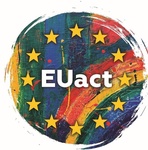International conference “Tackling the Impact of Hate Speech on Our Lives and Society: A Comprehensive Approach Towards Prevention of Hate Involving Policy Makers and Young People”
An international conference Tackling the Impact of Hate Speech on Our Lives and Society: A Comprehensive Approach Towards Prevention of Hate Involving Policy Makers and Young People” organised on 25 June 2022, in Cluj-Napoca.
Even though hate speech is not a new phenomenon, the times of global crisis show how hate speech fuels the existing tensions within the societies. All EU member states during past few years have been strongly affected by Covid-19 pandemic and since 24 February 2022 by war in Ukraine. We can hardly find a person who would not witness or has not been personally affected by hate speech during these times.
Hate speech has a potential to incite violence, undermine social cohesion and safety, cause psychological, emotional and physical harm. Moreover, history and recent events show that war crimes, genocide and other atrocity crimes begin with words and spread propaganda of hatred. Therefore, there is a collective responsibility to address hate speech and promote peace building online and offline making our communities safe.
The international conference aimed to adress above mentioned challenges and to discuss the impact of hate speech on individuals, communities and the European Union, actions need to be taken to combat hate speech and promote democratic values and human rights, and the role of young people and civic activism. The conference gathered 54 participants from Romania, Bulgaria, Croatia, Latvia, Estonia, Lithuania, Germany, United Kingdom, Moldova, Italy, Portugal. The participants represented a diverse group – educational professionals, NGOs, students, representatives of minorities and vulnerable groups, young people and other persons interested in taking more active role in promotion of human rights and tackling intolerance.
The conference was moderated by Aleksandrs Milovs, human rights education programme manager of the international network “Participation for all” (Latvia). First session was opened by Kai Brand-Jacobsen, President of the Romanian Peace Institute (PATRIR) with an introductory speech on actual developments regarding hate speech and its impact on the EU and the societies, stressing the link between spread of hate and extremism. Ramona Chiriac, Head of the European Commission’s Representation in Romania outlined the current challenges whithin the EU, newest initiatiaves of the European Commission on tackling hate speech, and the importance of joined-up approach. The project manager Jekaterina Tumule (Latvian Centre for Human Rights) gave an overview about the activities implemented in the framework of the project “Active European Citizens Against Hate Speech” and main conclusions. Project’s principal researcher prof.Doctor honoris causa Anna Krasteva presented the findings of a comparative report “Hate speech and Euroscepticism in Romania, Croatia, Bulgaria, Latvia, Lithuania and Estonia”, which maps tendencies and challenges of spread of hate speech and outlines parallels between Eurosceptic discourse and incitement to hatred. The research provides examples of the best practices and recommendations on measures for combating hate speech.
During the second session Natalja Gudakovska (Participation for All, Latvia) presented outcomes of local youth events organised in all project partner cities and shared youth messages on tackling hate speech across Europe. Dr. Dana Dolghin (Romanian Peace Institute - PATRIR, Romania) outlined the changes in the landscape of hate speech, specifically focusing on Romanian context.
The third session took a form of interactive workshops discussing actual topics aiming to promote exchange of practices and ideas for further initiatives on combating hate speech and promoting democratic value. One of the workshops was dedicated to the topic of a comprehensive approach addressing and overcoming hate and sharing experiences from the EU and globally. The workshop was facilitated by Kai Brand-Jacobsen (Romanian Peace Institute – PATRIR, Romania).This workshop addressed practical and ‘front of the field’ lessons and recommendations for practitioners and identified the features of a comprehensive approach to overcoming hate and tackling violent extremism. The workshop included special focus on education, urban-based approaches, and a peacebuilding approach to tackling violent extremism.
The second workshop was dedicated to hate speech and freedom of speech: limits, challenges, solutions. It was facilitated by Tina Đaković and Sara Sinčić (Human Rights House Zagreb, Croatia). The workshop focused on the broader understanding about the freedom of expression and its limits. During the workshop, the participants reflected on this phenomena and tried to find answers to the questions such as: Where are the limits of free speech in the context of hate speech? What is the human rights-based approach to addressing the hate speech phenomenon? When to remove and when to prosecute and sanction hate speech? How to prevent hate speech and what is the role of youth in that?
The conference ended with conclusion of the workshops and discussion on the further steps to make preventing hate speech.
The conference was organised in the framework of the project “Active European Citizens Against Hate Speech”. The aim of the project is to raise awareness of the new generation of European citizens about the impact of hate speech on democratic participation and European values. The project is implemented by the “Latvian Centre for Human Rights” (project coordinator), “Participation for All” (Latvia), “Estonian Human Rights Centre”, “Human Rights Monitoring Institute” (Lithuania), “Multi Kulti Collective” (Bulgaria), “Human Rights House Zagreb” (Croatia), “Peace Action Training and Research Institute of Romania - PATRIR”. The project is co-funded by theEurope for Citizens Programme of the European Union.

Attachments
- Programme of the conference
- Presentation by Anna Krasteva
- Presentation about local events
- Presentation by Dana Dolghin
- Presentation about project
Published: 2022-06-27








